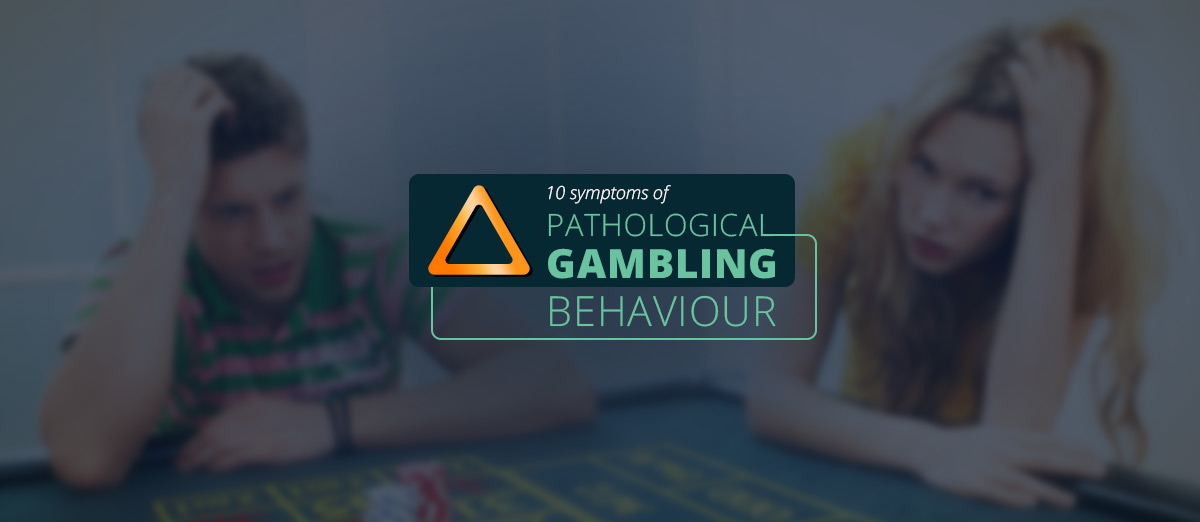Ten Ways to Identify Problem Gambling

When gambling stops being just a form of entertainment, it can negatively impact on players’ living standards, health, and relationships. The promotion of responsible gaming is perhaps the most effective way to fight this type of behaviour.
Slotegrator, as a developer of iGaming solutions, strongly supports responsible gaming. We invite all online casinos and betting operators to implement responsible gaming measures, and we urge players to always be mindful of their gaming habits.
Problem gambling indicates the pathological urge to continuously play games of chance in the face of harm that results from this behaviour. In 2018, the World Health Organization (WHO) included gambling addiction in the International Classification of Diseases (ICD-11).
Governments, dedicated charities, and the gaming industry itself are actively working to tackle the issue of compulsive gambling. The strategy employed is two-pronged: we are seeing the implementation of responsible gaming tools directly in gambling products, particularly within the iGaming sphere; at the same time, players are being targeted with awareness campaigns to raise their understanding of problem gambling and support a responsible gaming behaviour.
If you want to learn more about problem gambling – maybe because you think yourself or someone you know may be affected by it – just keep reading: in this article, we’ll list ten signs that may reveal a pathological behaviour.
For a comprehensive problem gambling self-test, you can visit BeGambleAware or GamCare. If you are looking for help, make sure to reach out to support organisations like those listed here.
1. Random Gambling
A problem gambler places punts randomly: they stake on anything that catches their attention rather than on what they’re interested in and understand.
A responsible player tends to be selective in their gambling. For example, if they follow football, hockey, and tennis, those are the sports they bet on.
2. Impulsive Gambling
A problem gambler feels the urge to spend money on games of chance and often slips into spending more than planned. To seek the thrill of the game, they ignore rational considerations on what they can afford to spend.

Deliberately paced gambling is perhaps the safest way to approach games of chance. A player could only place bets on their favourite team’s games and stick to an amount that they can afford to lose – higher or lower depending on their financial situation, comments Dmytro Kryvorchuk.
3. Spending Money Budgeted for Other Purposes
Closely related to point 2, this happens when the player funnels money that was budgeted for other purposes into gambling – be it $2 for an ice cream or $1,000 for their mortgage.
No matter the hobby in question, it’s important to be aware of what one can afford to spend on entertainment. Responsible gamblers have a well-defined budget and stick to it.
4. Borrowing Money to Play
After running out of money due to lost punts, a problem gambler might resort to borrowing money rather than stop playing. This can strain the relationship with friends and family if they are the lenders or even have legal consequences if the player seeks out a bank loan.
A player lost their bank card, now it’s frozen and they can’t get cash out of the ATM to place an already budgeted bet: nothing wrong with borrowing a fiver from a friend and returning it as soon as the replacement card arrives, but that’s as far as borrowing for gambling should go.
5. Continuous Gambling
An addicted player may dedicate most of their time to gambling. They might do it during meals or while in bed, or even at socially inappropriate times like during working hours.
While problem gambling is usually defined by its harmful effects rather than the amount of time spent playing per se, it’s important to keep an eye on it as the two can be correlated. Having well-defined gaming windows is perhaps the safest option: it helps responsible players avoid strains on their relationships and fulfil their social commitments.
6. A Correlation between Mood and Gambling

For addicted players, the relationship between mood and gambling can take two forms, Paula Gonzalez explains. The player may use gambling as a way to escape reality when in a bad mood; alternatively, they might be so invested in gambling that the results of their gaming sessions impact their mood.
Being happy for a win or disappointed for a loss is perfectly normal, but someone with healthy playing habits isn’t deeply affected on an emotional level in either circumstance. In the same way, they know that gambling can’t and shouldn’t be used as a form of relief or distraction from existing problems.
7. Keeping Gambling a Secret
According to doctors, the easiest way to determine if someone is a problem gambler is to ask them if their family and friends are aware of their hobby. Addicted players tend to keep their habits and expenses a secret, considering them wrong and shameful, yet they are unable to stop gambling.
A healthy player is likely to be open about their gambling habits, as they don’t have a negative impact on their life. Like many other hobbies, gambling can be expensive, but it’s unlikely to result in shame and secrecy as long as it is kept in check.
8. Any Available Money Is a Good Reason to Play
Whenever they have access to funds, problem gamblers tend to funnel them into gaming. They rush to make a deposit on payday, when receiving a monetary gift, or if a planned expense doesn’t materialise, leaving them with cash on hand.

Being thoughtful about their budget, a responsible player doesn’t equate available funds to gambling credit, Jashwant Patel says. Granted, they may use a fraction or even all of it for their entertainment, but not as a rule.
9. Playing to Recoup Losses
If today a problem gambler loses $50, tomorrow they’re likely to burn $100 trying to make up for it. In these situations, they get caught in a downward spiral and lose control of their playing behaviour. Significant spikes in a player’s expenditures and bet sizes are often a symptom of this.
Responsible players tend to keep their expenditures constant, with large bets no higher than 2.5 times the average. When losing money, they tend to reduce the bet size and eventually stop playing for the day.
10. Lack of Gambling Preferences
A problem gambler might play slot machines, card games, and roulette while waiting for the results of a sporting bet. They might have a catholic taste in gaming, or, more likely, they gamble for addiction to the thrill and possibly as a misguided attempt to rake in some income.

Healthy player habits tend to include well-defined preferences. A responsible player may, for example, like betting and poker and not care at all about slots. They bet because they like sports; going up against a bookmaker is just an opportunity to compete, suggests Ayvar Gabidullin.
The iGaming Industry vs. Problem Gambling
By supporting responsible gaming, iGaming operators pledge to do their part and protect players from the harm that may result from gambling. This includes introducing dedicated tools to their platforms for players to keep their habits in check, taking pre-emptive measures to help potential problem gamblers early, and deterring self-excluded players as well as minors from accessing their services.
For operators, implementing strict user verification checks in the registration process as a form of gatekeeping is the first step to protect vulnerable individuals. Players should be constantly informed of the risks associated with gambling, and the monitoring of their gaming behaviour is key in noticing early red flags.
In many countries already mandated by law, responsible gaming tenets and procedures should always be kept in mind by operators. Today, a truly first-class service can’t prescind from a safe, fair gaming environment and extensive player protection measures.





Review this Blog
Leave a Comment
User Comments
comments for Ten Ways to Identify Problem Gambling